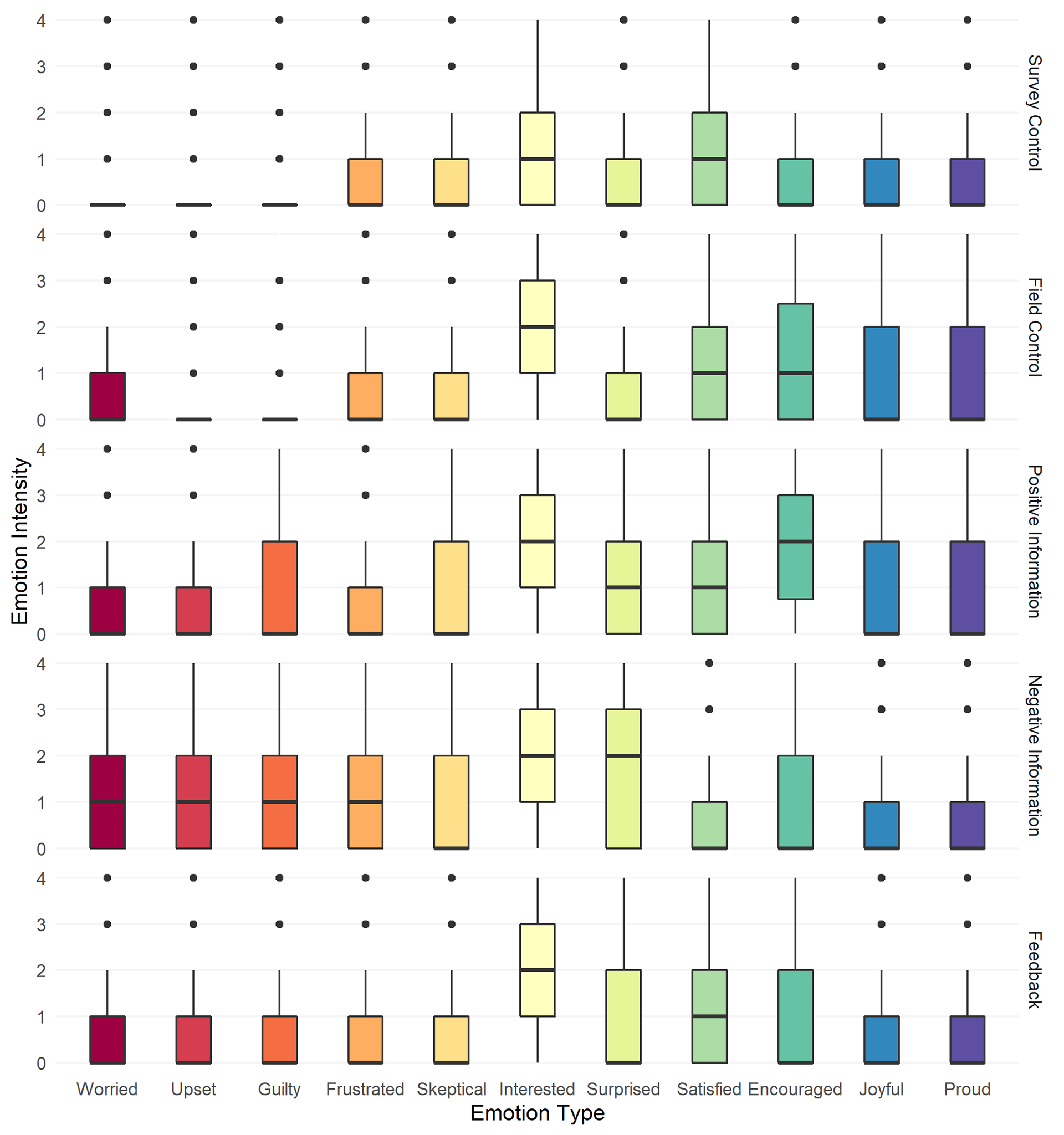Designing products to encourage sustainable behavior during their use can have significant influence on their total environmental impact. Products designed with cognitive interventions to evoke positive or negative emotions can inform users of the importance of sustainable behavior and make them aware of the resources they consume. The first part of this study investigated designs utilizing two cognitive interventions, information (positively and negatively framed) and feedback, and their effectiveness in encouraging users to reduce their napkin consumption in cafés over a period of 8 weeks. The number of napkins consumed per transaction illustrated a short-term behavior change for the product designed with positive information, a longer-term behavior change for the product with negative information, and no change for the product designed with feedback. In the second phase of this study, a survey was conducted to understand environmental concerns around napkin consumption and the emotions and perceived effectiveness of each product’s design. Results from 295 valid survey responses showed that the positively framed informative design reminded users to use less napkins to save trees and was dominated by positive emotions such as feeling encouraged. The product designed with a negative information message encouraged users to use fewer napkins due to the consequences to the environment and was related to negative emotions such as guilt and worry. The feedback design’s message was more informative, reminding users that napkins come from trees and the emotions evoked from the intervention closely resembled that of the control. These findings suggest that products designed with information and feedback interventions that evoke emotions can be used to promote sustainable behavior.
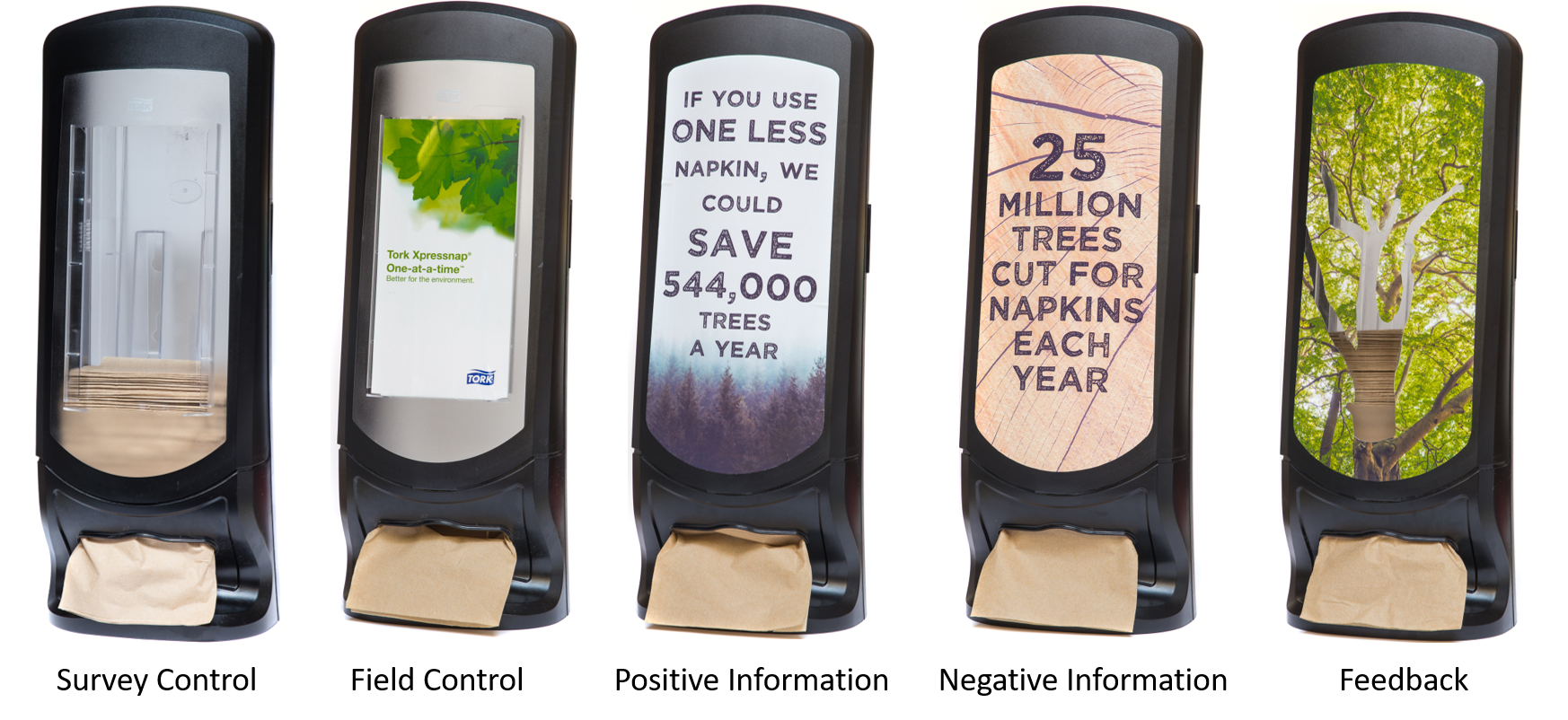
Control and designed dispensers used in field study and survey
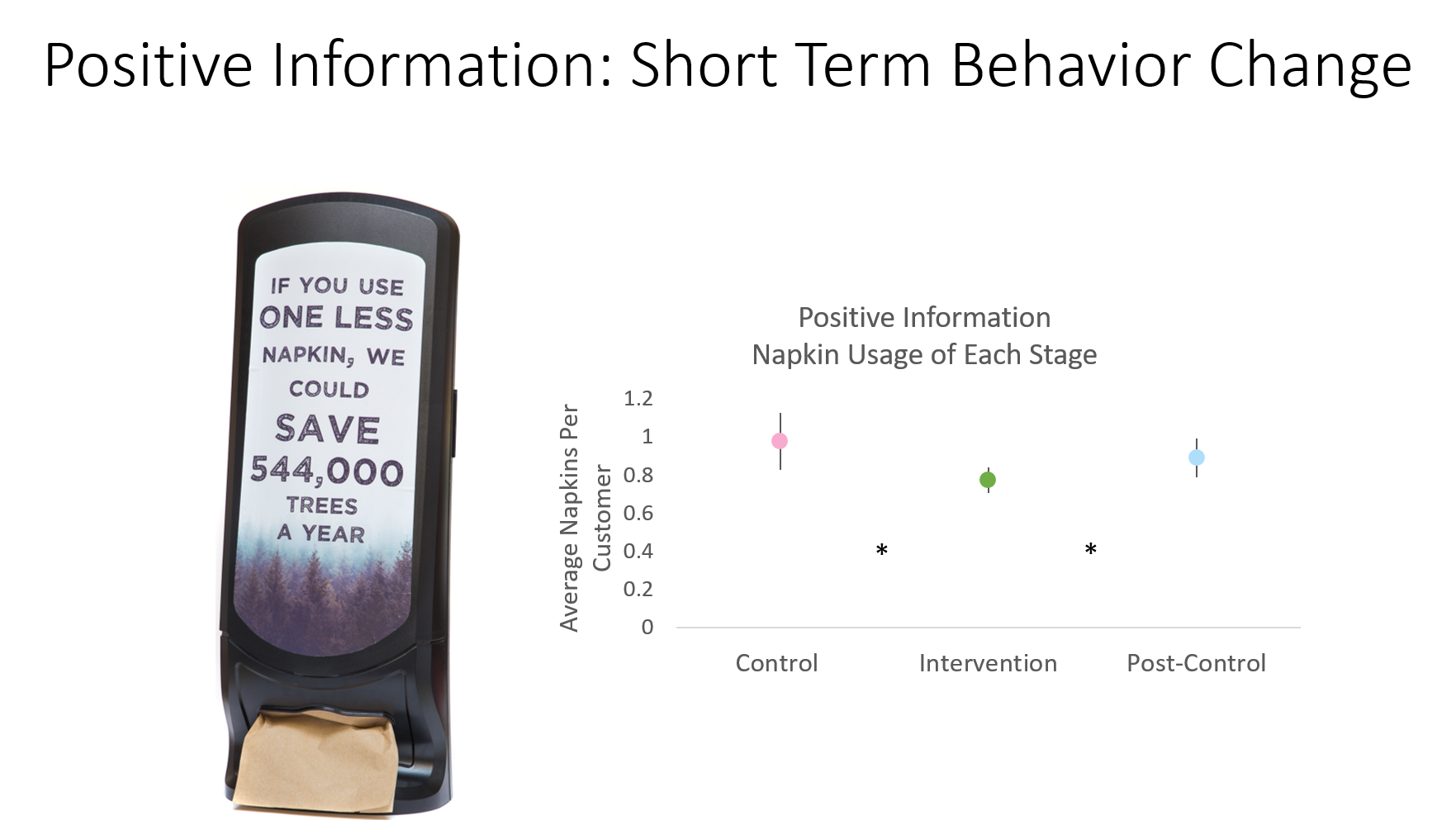
Observed napkin usage in café of positively designed dispenser
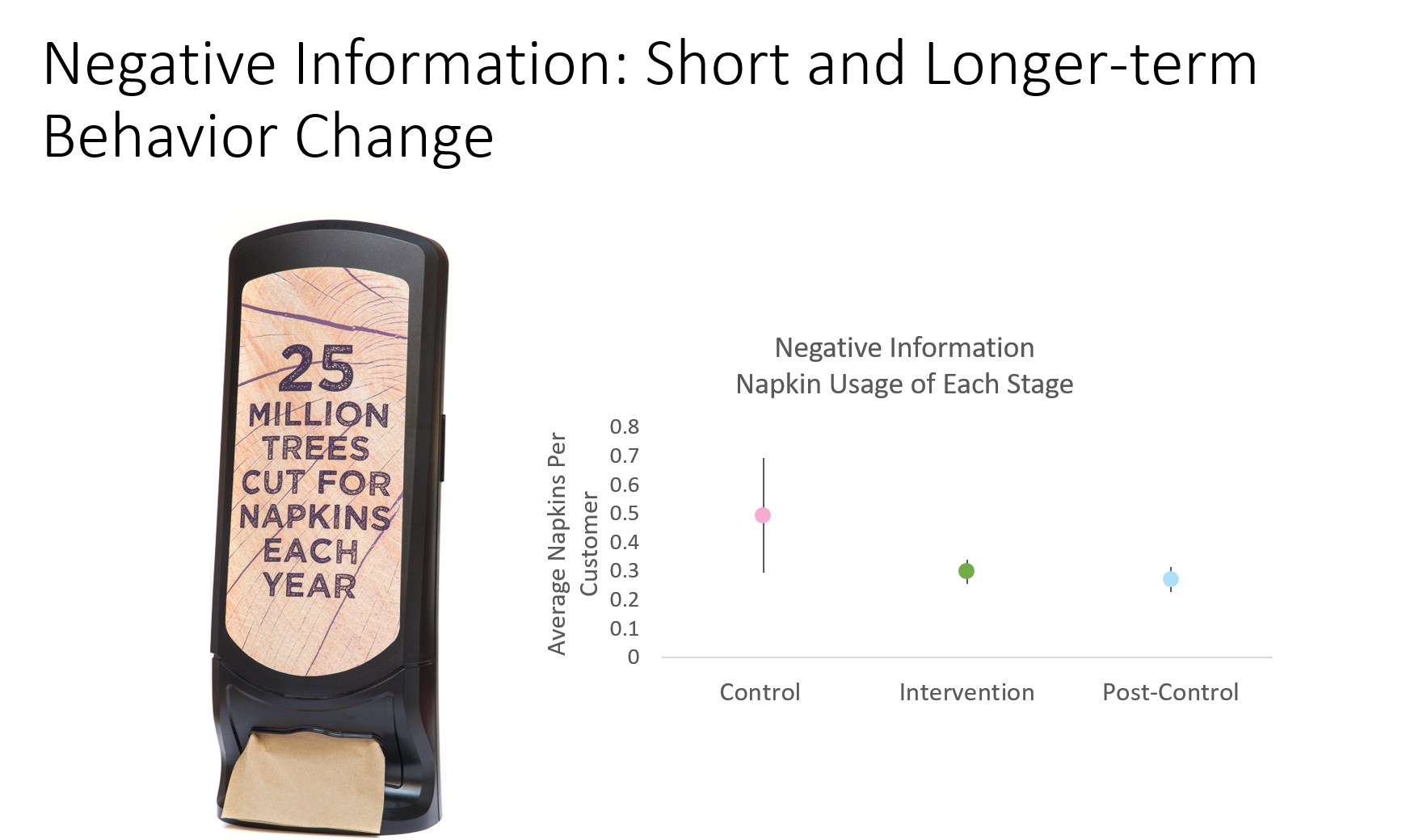
Observed napkin usage in café of negatively designed dispenser
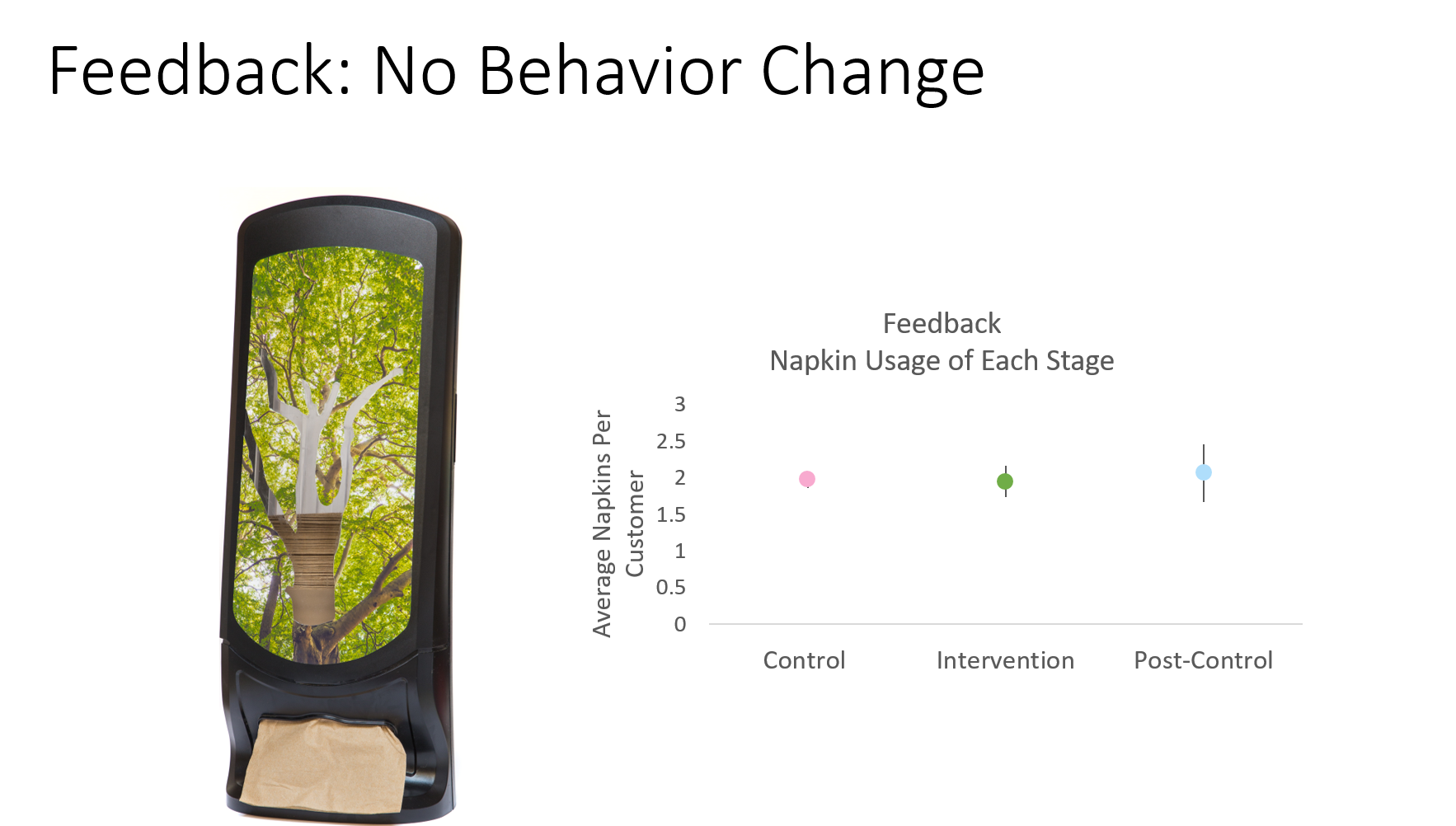
Observed napkin usage in café of feedback designed dispenser
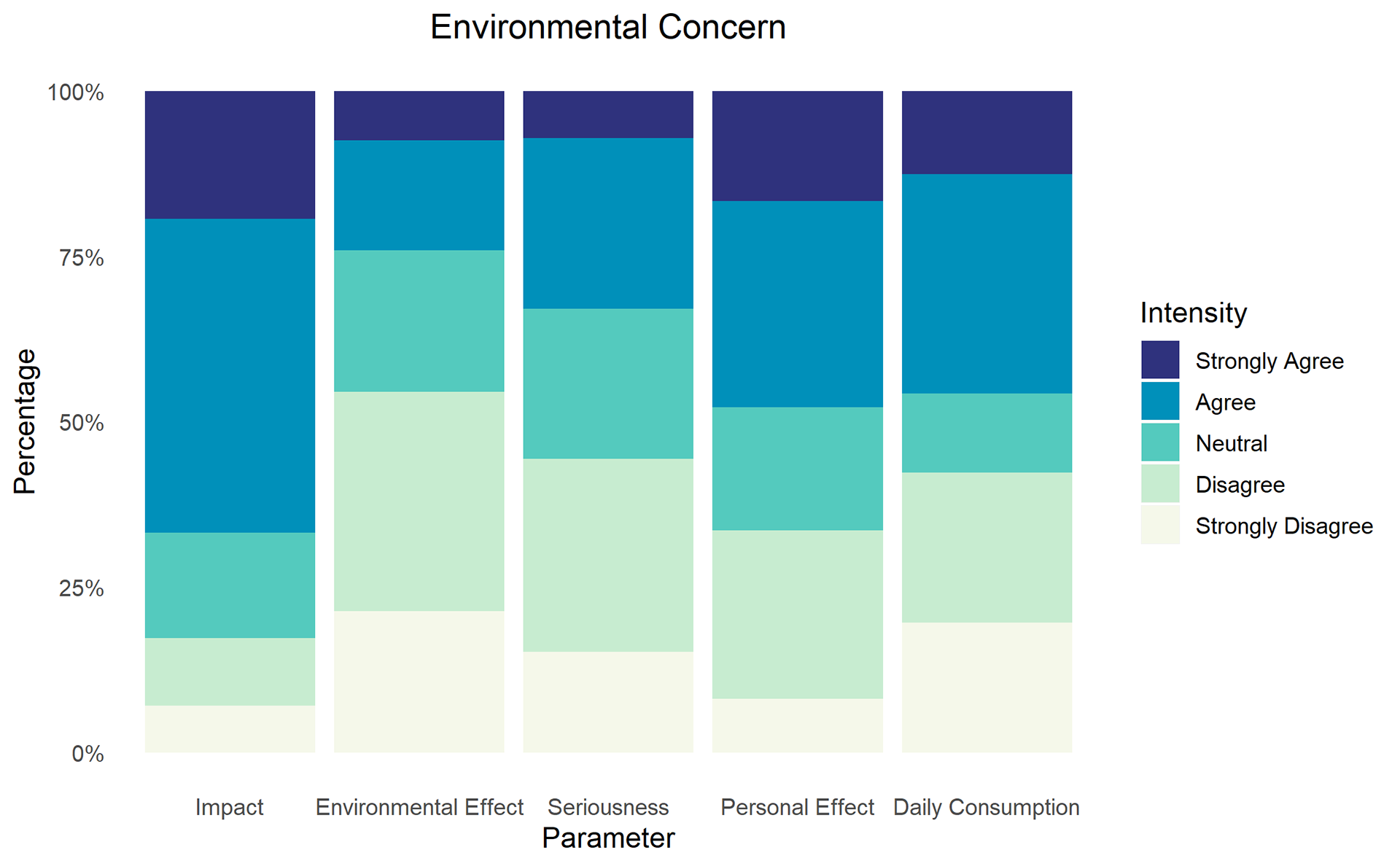
Survey results indicate low level of concern regarding napkin usage
